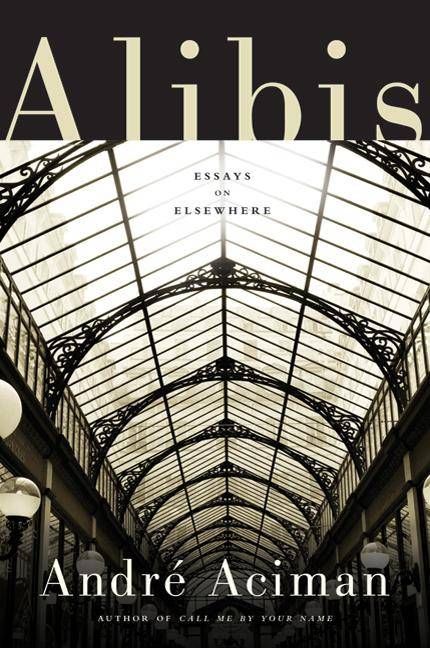
Riot Round-Up: The Best Books We Read in November
We asked our contributors to share the best book they read this month. We’ve got fiction, nonfiction, YA, memoir, and more. Some are old, some are new, and some aren’t even out yet. Enjoy, and please tell us about the highlight of your reading month in the comments.
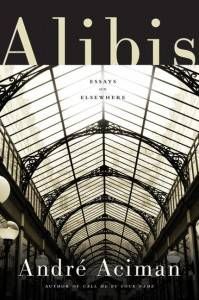
I read several face-meltingly good books this month, and this one takes the cake. The linked essays in this collection aren’t travel writing in the traditional sense–they’re not so much about where Aciman goes and what he sees as they are about what we look for and what happens to us when we travel. They are about sense and memory, and about what it is to be a writer and to therefore always be distanced from the moment as it occurs. They’re about the way that art allows us to see and feel things we think our uniquely ours, only to discover that they are universal. And they’re about books. Of course they are. How better to leave oneself and get a little perspective than to read?
“Great books, like great cities, always let us find things we think are only in us and couldn’t possibly belong elsewhere but that turn out to be broadcast everywhere we look.”
This was my first experience reading Aciman, and I couldn’t have asked for a more powerful introduction to his work. Alibis is just out in paperback. Do yourself a favor and pick it up.
–Rebecca Joines Schinsky
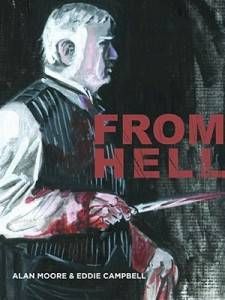
From Hell was one of the very few books left by Alan Moore which I hadn’t gotten to read, and it was driving me nuts. It looked breathtaking, a five-hundred-plus page examination of not only the Jack the Ripper murders, but the world which surrounded them: the strange birthing of the 20th century out of the 19th, the rise of the modern world out of the remnants of empire. When my library finally got a copy, I was over the moon. Despite having read a wealth of Alan Moore, I was still unprepared for the incredible depth and detail and complexity (and tragedy, in heaps) of From Hell. The blending of worlds and classes, of science and occult, philosophy and musings from people in the gutter…it was an intense, heady read and one which I can’t wait to revisit. I’m not sure this is where I’d recommend someone to begin reading Alan Moore, or comics, but I’d urge anyone to try and get here eventually. Comics like From Hell are the towering mountain peaks of the comics medium.
–Peter Damien
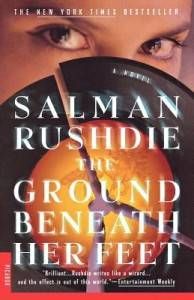
I first read this book in college, when I was deep under the spell of Rushdie. It’s been years since I read anything of his, but this one called my name loud and clear this past month. And what a reread — all my favorite bits are still there, and there were layers that I’d either forgotten or never noticed in the first place. It’s a rock’n’roll tragicomedy for the ages, an amazing piece of literature, (surprisingly, shockingly) politically relevant, and my favorite retelling of the Orpheus story.
–Jenn Northington
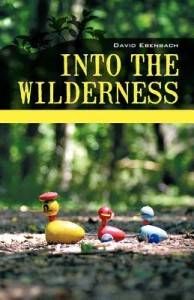
This short story collection about the terror and pitfalls and loves and more terror that comes along with parenting. Each story is from an interesting point of view: a lesbian couple deciding how to raise their son, a single mother in New York who doesn’t know who the father of her newborn is, a suburban mother whose tennage son (accidentally) locks her in the basement, a young couple deciding if they even want to have children or not. The prose is deceptively simple (a la Raymond Carver) and the stories are lovely and often heartbreaking.
–Amanda Nelson
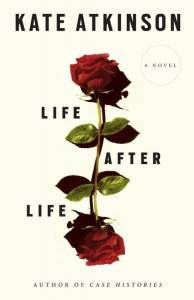
OH EM GEE! Kate Atkinson has really outdone herself – which is hard, because she is uh-may-zing. This is the story of Ursula, a woman who is born, dies, and reborn, over and over, and each time, the details change a tiny bit. And it is so brilliant, the way Atkinson goes back over things, but doesn’t bore you with the same details, and I found myself holding my breath, wondering what would be the next cause of Ursula’s death. True story: In the middle of reading this book, I was so engrossed, I didn’t remember that I was holding an open bottle of Fresca, and went to scratch my head, and ended up pouring soda all down my back and into my bed. Did I get up? No – I needed to find out what happened first! Seriously. Mark the release date down on your calendar. You’ll thank yourself later.
–Liberty Hardy
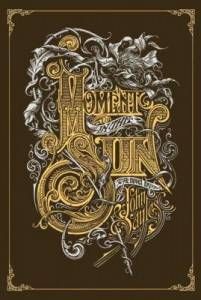
This book is long. It’s really really long. But its totally worth it. Starting in 1897, it moves through five turbulent years across many continents. Huge themes like labor strikes and the morality of empire are dealt with in keyhole glances through the varied lives of interesting people. It normally would have taken me months to read a book this long, but its such a page-turner that I just couldn’t put it down until I had finished it. Jim Crow, the Yukon, the war with Spain, Yellow Journalism…if American history is your thing, this book has it all.
–Scott Beauchamp
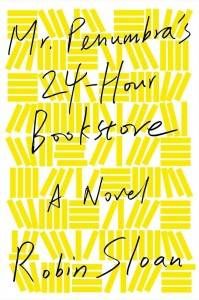
I knew nothing about this book going in except that it was about an underemployed college graduate who finds a job as the overnight clerk in an unusual bookstore. I had no idea that there would be so much technology in the story, and I have to say that I was pleasantly surprised. Books and technology can co-exist, and Mr. Penumbra proves that. It also has adventure, mystery, and a quest for the heart of a beautiful (and highly intelligent) girl. It’s a book with a little bit of everything, including a healthy appreciation for books themselves.
–Cassandra Neace
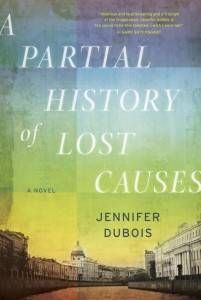
It’s been awhile since I read a novel as artfully written as DuBois’ debut. The story is of a early-30s woman named Irina who travels to Russia to find a former chess master, who is now running against Vladimir Putin. Irina’s father had died of Huntington’s disease — a hereditary, degenerative disease similar to Alzheimer’s — and Irina’s doctors have told her she’ll probably begin to show symptoms herself by age 32. Her life is literally a lost cause — but aren’t all lives? It’s what we do in the interim — to bring to happiness to ourselves and others — that makes a lost cause not lost. This is a stunning, beautifully written, profound debut. Highly recommended.
–Greg Zimmerman
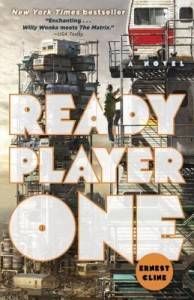
So late to the party, but how awesome was Ready Player One? I love all the things it encompasses: nerd culture, dystopic fantasy, video games, obscure factoids, the 80s. Pure enjoyment, pure delight, and conveniently packaged in a thoughtfully constructed narrative.
–Brenna Clarke Gray
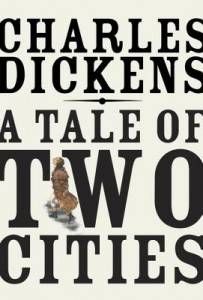
I’m on a bit of a Dickens binge at the moment, brought on by my reading of Dan Simmons’ Drood, which is a fictional account of the last years of Dickens’ life. A Tale of Two Cities was on the to-read list but jumped up a number of places when I heard that much of the inspiration for this summer’s Batman movie came from the book. And it did not disappoint. It is not my favorite Dickens, but a bad Dickens book is still better than most other books out there. It takes place during the French Revolution, and the two cities in the book are Paris and London. It tells the tale of a man who has recently been released from the Bastille and “returned to life.” A series of Dickensian coincidences ensue and a great, superbly written, ride through the revolution. A classic, a must-read, and a great way to impress people at parties. “You know, the inspiration for most of Nolan’s final installment in the Batman trilogy came from A Tale of Two Cities.”
–Johann Thorsson
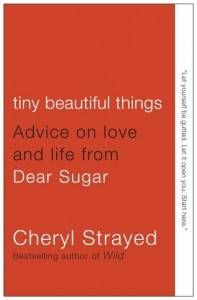
The weird thing about reading an advice book, particularly this advice book, is that you go in it for the beautiful writing and come out of it having learned some stuff. This collection of Dear Sugar columns from The Rumpus is horrifying, enthralling, and inspiring all at the same time. Plus, if you’ve read Strayed’s memoir Wild (and you totally should, it’s fabulous) it’s hard not to see this as a sequel. Strayed, writing as Sugar, uses a lot of examples from her life in her advice and it’s kind of nice learn how things turned out after she got off the Pacific Coast Trail.
–Jodi Chromey
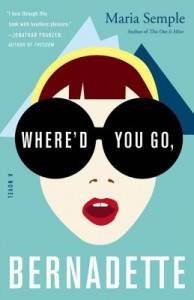
This is easily topping my list of not only best books I read in November, but best books of 2012. This book has been described as many things by other people – epistolary, coming-of-age, hilarious, heartrending – and while all of those descriptions are true, it’s hard to capture the spark of Semple’s novel in any of those words. Where’d You Go, Bernadette? is that rare animal that defies simple summarization, but trust that its filled with characters you’ll love and a few you’ll hate, and you’ll relate to oh-so-many moments. I read it in one day. Granted, it was a vacation day, but still. One day. Easily.
–Rachel Manwill
Your turn, readers! What was your best pick of November?

















